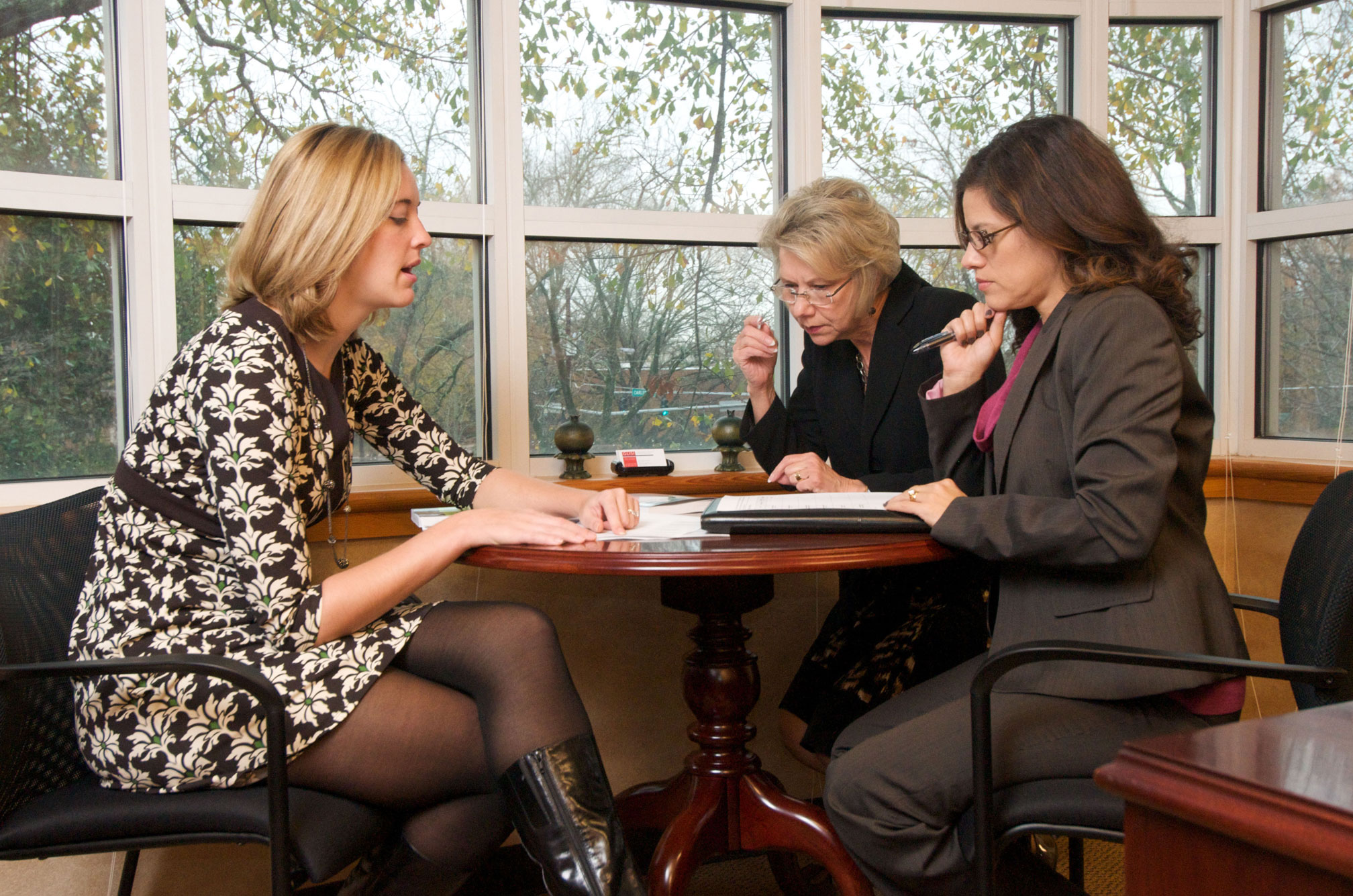Most graduate assistantships involve research projects or teaching classes. At the Fanning Institute, a public service and outreach unit, graduate students help find solutions to community problems in a multidisciplinary environment as part of the Fanning Fellows program.
This year, there are 17 Fellows—doctoral, master’s and law students—from a range of disciplines: art, foods and nutrition, law, public health, marketing, exercise physiology, public administration and policy, social work, and environment and design—participating in Fanning projects. Solving community problems requires a team with different backgrounds and skills, and the Fellows reflect the kinds of disciplines needed to address the issues.
Most Fellows work on at least two core projects under the direction of a faculty mentor.
Jennie Welch, a doctoral student in public administration, is part of a $75 million, five-year Wallace Foundation initiative to develop a large corps of effective principals in six urban school districts across the nation. Her core project is to create the gold standard leadership program for aspiring school leaders in Gwinnett County public schools.
The Georgia Leadership Institute for School Improvement, a division of the Fanning Institute that offers leadership training and capacity building for K-12 school systems throughout Georgia, is a partner with the county; and GLISI faculty are mentoring Welch as she works with them as part of the UGA team.
“I like doing educational research,” the Roanoke, Va., native said. “As a master’s student at the University of Delaware, I actually worked for an organization that mirrors GLISI. It’s providential how aligned the work I was doing is to what I’m doing at Fanning now.”
Welch also will develop a publication to inform aspiring school leaders about the best leadership programs statewide, and she’ll be studying the impact of GLISI’s leadership program on student achievement in Georgia.
Whitney Bignell, a doctoral student in foods and nutrition, is helping Columbus address childhood obesity. As an undergraduate, the former Augusta native earned a bachelor’s degree in French at UGA.
While working in the private sector for about a decade, Bignell developed interests in counseling and nutrition and wanted a job where she helped people. She went back to school for a second bachelor’s degree in dietetics and would eventually like to train undergraduates in that field.
“I enjoy program planning, especially process evaluation,” Bignell said. “Programs can be well planned, but if they’re not delivered properly, you don’t get the outcomes you want.”
For her core project, she helps with a needs assessment for Live Healthy Columbus, part of the Live Healthy Georgia and Live Healthy America programs. The project involves determining what resources are available to combat childhood obesity. She’ll look at who uses the programs, who they are intended for and what barriers may prevent their use.
“[This project] lets me work with clients, which I didn’t get to do before,” Bignell said. “And I’m learning skills for facilitating public discussions.”
Other projects that the Fanning Fellows are working on include figuring out the best ways to use public input to solve environmental issues, developing tools to determine whether juvenile cases can be mediated or tried in juvenile courts and connecting foster families through technology.
Not only are these graduate students gaining experience with how to solve problems in education, health care and more, but Georgia communities also benefit from their work, which helps resolve important local issues.


